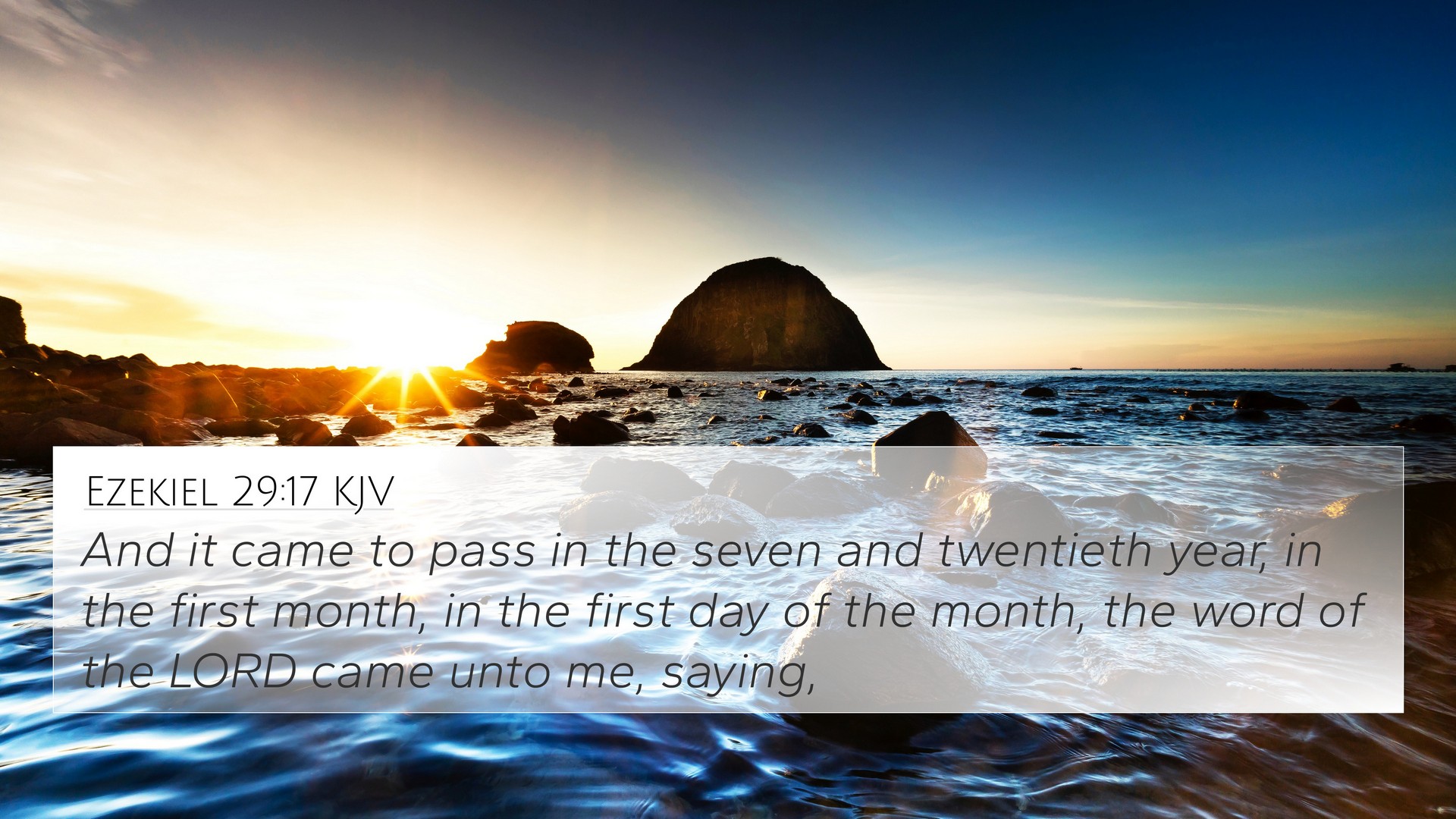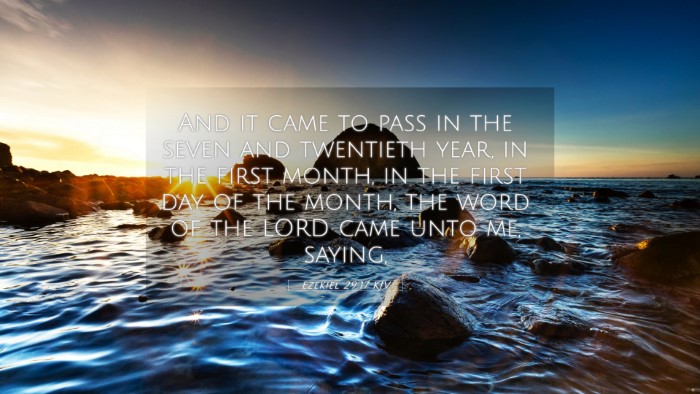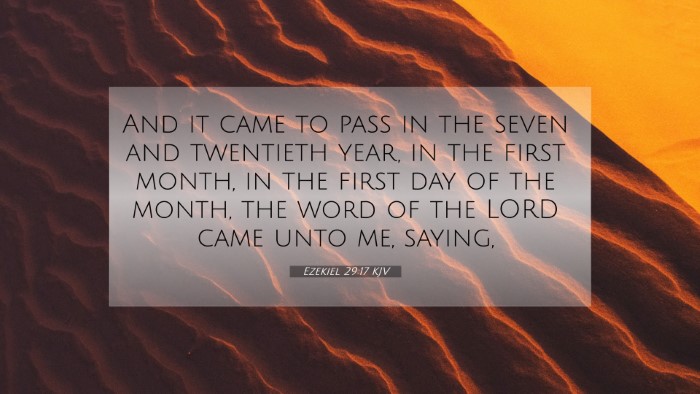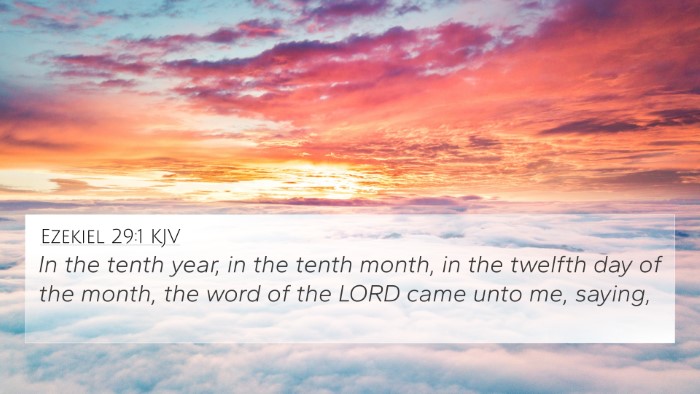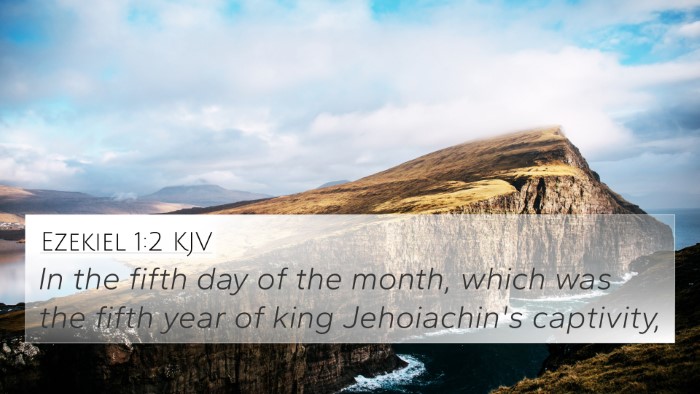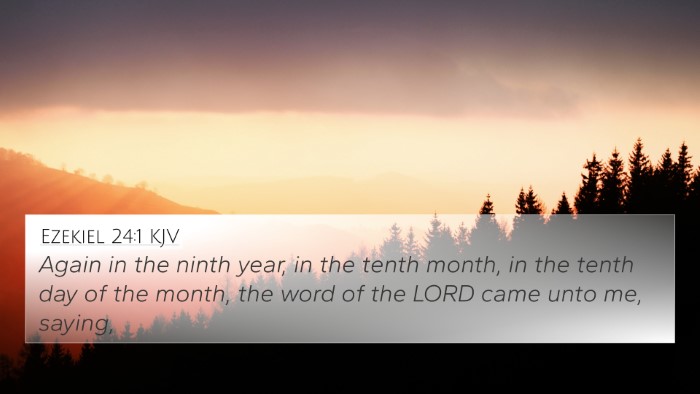Ezekiel 29:17 - Summary and Interpretation
Bible Verse: Ezekiel 29:17 - "In the twenty-seventh year, in the first month, on the first day of the month, the word of the Lord came to me, saying..."
Contextual Background
The book of Ezekiel, a prophetic book in the Old Testament, was written during the Babylonian exile. Ezekiel, a priest and prophet, addresses the people of Israel and reveals God’s judgment against various nations, including Egypt. This particular verse marks a significant point in time, emphasizing God's ongoing communication with Ezekiel amidst the broader narrative of judgement and restoration.
Insights from Public Domain Commentaries
Matthew Henry's Commentary: Henry notes that the timing of this prophecy after many years signifies both a transition and fulfillment of prophetic time. This part of Ezekiel’s ministry serves to remind the people of the long-standing promises of God and their eventual realization, particularly focusing on Egypt’s impending downfall.
Albert Barnes' Commentary: Barnes elaborates on the mention of "the twenty-seventh year," indicating a specific chronological context which connects to the larger picture of the history of Israel. He suggests that this period is crucial for understanding God’s judgments and interventions during the exilic period.
Adam Clarke's Commentary: Clarke expands on the significance of the timing, explaining that it reflects God's precise economy in dealing with nations. He emphasizes that this announcement reaches to the core of divine justice and mercy and serves to provoke reflection on the failures of nations, including Egypt, to acknowledge God's sovereignty.
Thematic Connections
In examining Ezekiel 29:17, we can explore several Bible verse cross-references that highlight similar themes of judgement, prophecy, and divine communication:
- Ezekiel 30:10-11: Highlights the judgment against Egypt, paralleling the message of destruction in Ezekiel 29.
- Isaiah 19:1: Another prophecy regarding Egypt's downfall, emphasizing God's sovereign rule over nations.
- Jeremiah 46:25: Focuses on the judgment of Egypt, offering connections in the prophetic narrative.
- Ezekiel 32:1-2: Further elaborates on Egypt’s destiny, linking thematically to the broader judgment against Egypt.
- Daniel 2:36-38: Connects the concept of God’s sovereignty over kingdoms, further enhancing the message of divine oversight present in Ezekiel.
- Revelation 16:12: The symbolic nature of nations’ decline and the consequences of divine judgment are evident through the lens of prophecy.
- Psalm 78:43-53: Reflects God's acts of judgment, which serve as theological foreshadowing relevant to Israel's times of rebellion.
Exegesis and Application
The verse functions as a reminder of God's enduring presence amidst exile, fulfilling His promises in His timing. It challenges readers to contemplate the implications of divine judgment and the call to repentance. Through cross-referencing Biblical texts, we can see an ongoing dialogue between scripture that affirms the cohesive nature of God’s plan across both the Old and New Testaments.
Conclusion
Ezekiel 29:17 serves as a valuable verse in understanding the prophetic literature of the Bible. It not only marks a specific moment in time but also invites a profound exploration of God's intentions, justice, and mercy across the biblical narrative. As we engage in cross-referencing Bible study, we uncover a wealth of connections that enrich our understanding of God's Word and affirm the importance of ongoing study in the life of a believer.
Further Study Tools
For those interested in pursuing more in-depth studies or tools for Bible cross-referencing, consider exploring:
- Bible concordances
- Bible cross-reference guides
- Comprehensive Bible cross-reference materials
- Cross-reference Bible study methods
- Inter-Biblical dialogue resources
